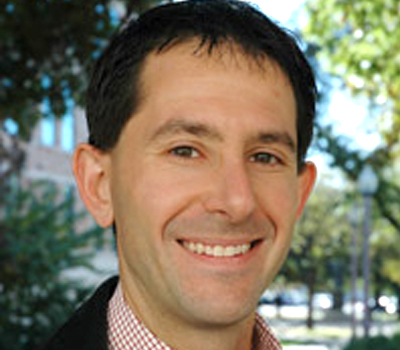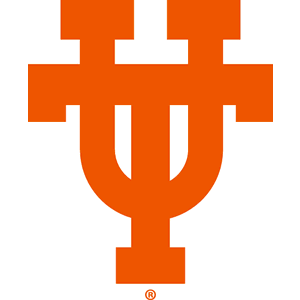Improving decision-making skills in robots using physical situations
Artificial intelligence in the 21st Century is no longer a mere subject of sci-fi fantasy - robots are real and are here to stay. Dr. Stone and his research team at The University of Texas at Austin, are at the forefront of artificial intelligence. From autonomous cars that can safely navigate busy traffic intersections and motorways, to robots that work together on a team to compete with other robots in competitive soccer tournaments, Dr. Stone is the robot man.
-
Dr Stone is the founder and team leader of the UT Austin Villa robot soccer teams at The University of Texas at Austin. Dr. Stone is also the Vice President of the RoboCup Federation.
-
Within the robot soccer domain, he is studying reinforcement learning which enables a team of autonomous robots to cooperate with each other and successfully compete on the soccer field.
- Dr. Stone invented "Autonomous Intersection Management" which is a scalable, safe, and efficient multiagent framework for managing autonomous vehicles at intersections.
The impact of artificial intelligence is ultimately boundless. Dr. Stone's research produces complete, robust, autonomous agents that can learn to interact with other intelligent agents in a wide range of complex, dynamic environments. Dr. Stone has proven this through his multifaceted research endeavors and he believes that general purpose robots will soon be in a store near you.
Bio
Dr. Peter Stone is an Alfred P. Sloan Research Fellow, Guggenheim Fellow, AAAI Fellow Fulbright Scholar, and University Distinguished Teaching Professor in the Department of Computer Science at the University of Texas at Austin.
He received his Ph.D. in 1998 and his M.S. in 1995 from Carnegie Mellon University, both in Computer Science.
He received his B.S. in Mathematics from the University of Chicago in 1993. From 1999 to 2002 he was a Senior Technical Staff Member in the Artificial Intelligence Principles Research Department at AT&T Labs - Research.
Prof. Stone's research interests include planning, machine learning, multiagent systems, robotics, and e-commerce.
Application domains include robot soccer, autonomous bidding agents, traffic management, and autonomic computing.
His doctoral thesis research contributed a flexible multiagent team structure and multiagent machine learning techniques for teams operating in real-time noisy environments in the presence of both teammates and adversaries.
He has developed teams of robot soccer agents that have won six robot soccer tournaments (RoboCup) in both simulation and with real robots.
He has also developed agents that have won four auction trading agent competitions (TAC). Prof. Stone is the author of "Layered Learning in Multiagent Systems: A Winning Approach to Robotic Soccer" (MIT Press, 2000) as well as a co-author of "Autonomous Bidding Agents: Strategies and Lessons from the Trading Agent Competition" (MIT Press, 2007).
In 2003, he won a CAREER award from the National Science Foundation for his research on learning agents in dynamic, collaborative, and adversarial multiagent environments.
In 2004, he was named an ONR Young Investigator for his research on machine learning on physical robots.
In 2007, he was awarded the prestigious IJCAI Computers and Thought award, given once every two years to the top AI researcher under the age of 35.
In 2013 he was awarded the University of Texas System Regents' Outstanding Teaching Award and in 2014 he was inducted into the UT Austin Academy of Distinguished Teachers.
In the News
Welcome to robot soccer. It's an intensely competitive game that tests advanced programming skills, and UT is really, really good at it
While driverless cars might still seem like science fiction outside the Valley, the people working and thinking about these technologies are starting to ask what these autos could mean for the city of the future. The short answer is "a lot"
Cars have gained a measure of autonomy in California. An effort spearheaded by Google to improve road safety by taking the human element out of the equation resulted in a new law that allows driverless cars on California roads
First contested in 1997, the RoboCup is an annual competition that brings together some of the finest minds in robotics and artificial intelligence, primarily to pit small-sided teams of fully automated robots against each other in games of football
Sporting robots are still slow. But their inventors are making rapid strides
Publications
Videos
Awards
Regents' Outstanding Teaching Award (2013)
The University of Texas System
Faculty Research Award (2012)
Robocup World Champion
Team member in 9 RoboCup events
Faculty Research and Engagement (FREP) award (2011)
Yahoo!


